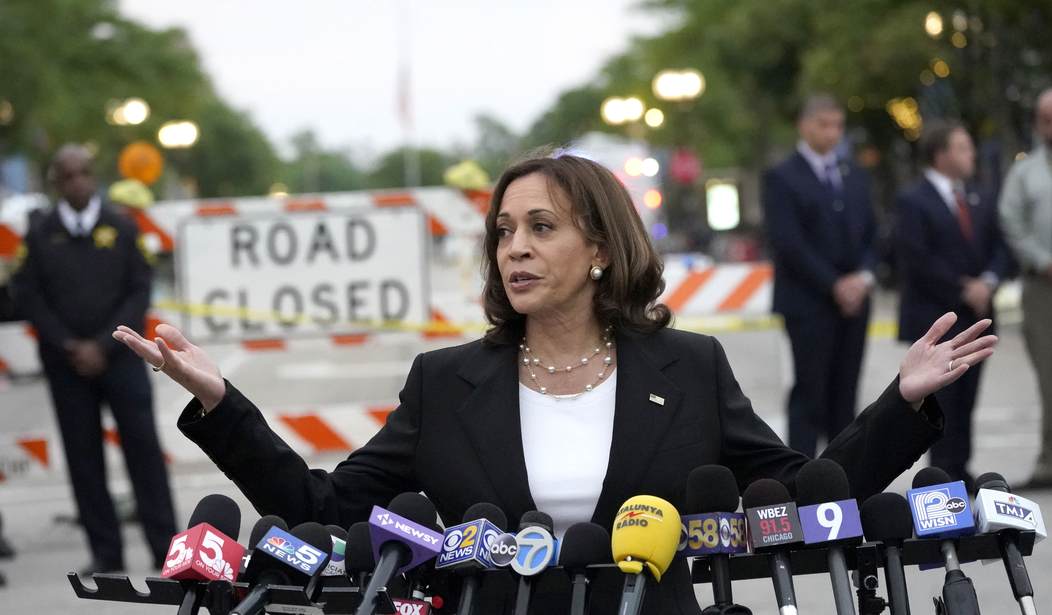Last week, John reported on the impending departure of Kamala Harris’ domestic policy adviser, Rohini Kosoglu. She’s packing up her office this week and going to “spend more time with her family.” Kosoglu was the 14th senior staff member to bail out on the Vice President’s office in less than 18 months. While staff turnover happens in pretty much every administration, this is a departure rate that is close to unprecedented, and people are starting to notice. At The Hill this weekend, Amie Parnes takes a walk down memory lane and points out that this is not something new for Harris. You can trace her political career all the way back to when she was the District Attorney in San Francisco. Each time she has moved on to a higher office (state Attorney General, Senator, and now Vice President) there was very little continuity in terms of her staffing. And while in office, her turnover rate was always higher than most of her colleagues. Surely that’s suggestive of something, right?
There’s been a running theme for years in Kamala Harris’s world.
When she was senator very few people in her office had the institutional knowledge of her time as attorney general in California. And when she was attorney general, there was some overlap but only a small cadre of staffers could contextualize her time as district attorney in San Francisco.
Now, as the vice president’s domestic policy adviser Rohini Kosoglu, one of her closest and longest serving staff members, leaves her office, Harris is facing that problem yet again.
More than 13 high-profile aides have left the vice president’s office, including her director of speechwriting Meghan Groob just last week.
Parnes describes Harris’ history as creating a “narrative of instability” in the Veep’s inner circle. This is a narrative that Harris has tried very hard to play down, often with the help of the liberal media. But her efforts clearly haven’t been very successful. Sometimes it’s not possible to deny reality after a while.
Parnes goes on to point out that this sort of personnel churn can weaken the office. Harris has fewer and fewer people who are intimately familiar with her “preferences, style and policy expertise.” We can debate what specific “policy expertise” Harris actually has until the cows come home, but it’s a valid point. It’s hard to offer the best guidance to your boss or client when you don’t really know their agenda or their strengths.
But this says something else about Harris herself that may become increasingly relevant over the rest of Joe Biden’s term, assuming he makes it to the end. Keep in mind that political staffers all have career ambitions of their own. They typically take those sorts of jobs with the hope that they will follow their boss up the ladder, landing increasingly lucrative and influential positions.
If Joe Biden either announces that he is retiring (as many expect) or simply loses the election in 2024, Harris would normally be seen as being nearly the default choice to replace him, either then or in 2028. She’s only 57, so she has plenty of time. You would think that any staffer sensing such a possibility would be working day and night to keep or advance their position with her. If she were to ascend to the White House, they could wind up with a cabinet position or one of the other highest roles in the federal government.
Do Harris’ people really have so little confidence in their boss that they don’t see any serious career opportunities with her? Or is she just simply that hard to work with? No matter the cause, it’s becoming increasingly clear that all is not well in the Vice President’s inner circle. And to make matters worse, even as Republicans are jockeying for position in the 2024 primary, most Democrats are stuck in a holding pattern. Unless Biden announces that he will retire after this term, most of them are unwilling to start actively moving to replace him, including Harris. And the longer Biden waits to make an announcement, the less time they will all have to get their ducks in a row for 2024.








Join the conversation as a VIP Member